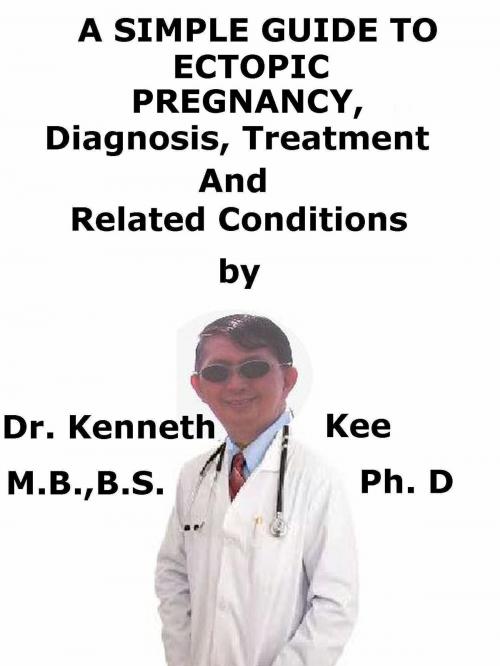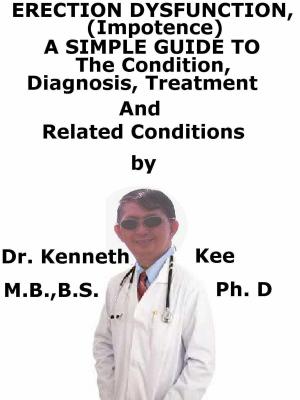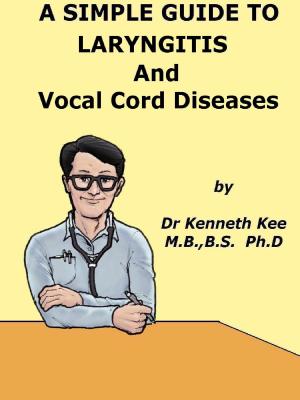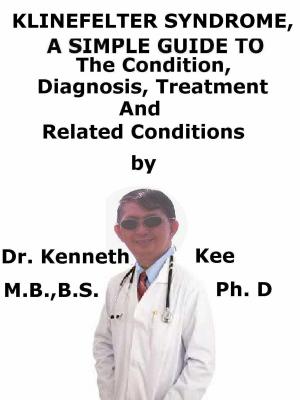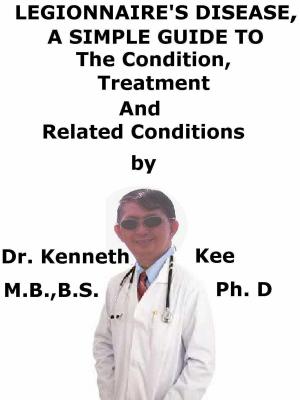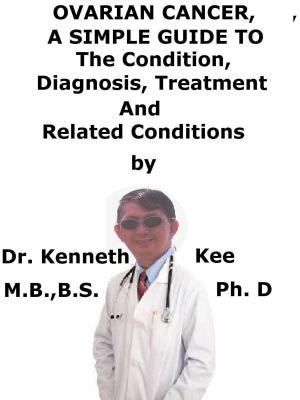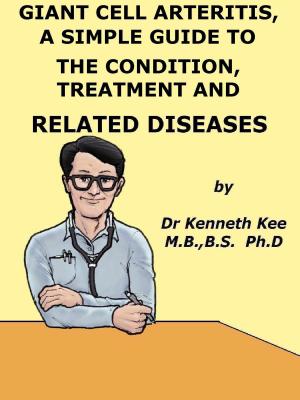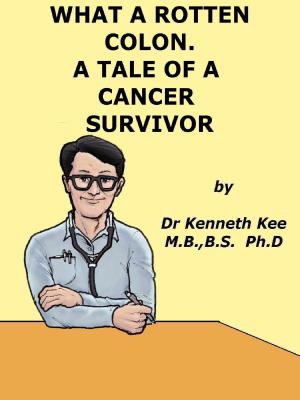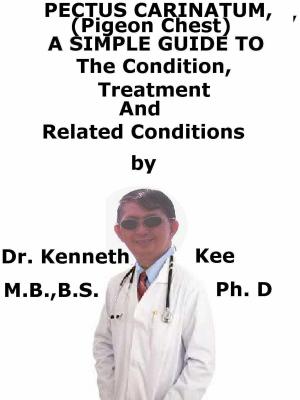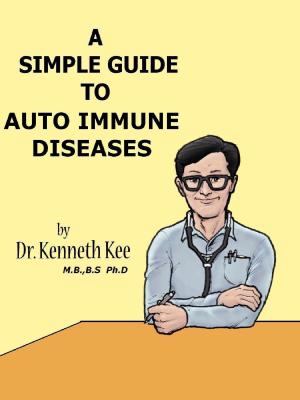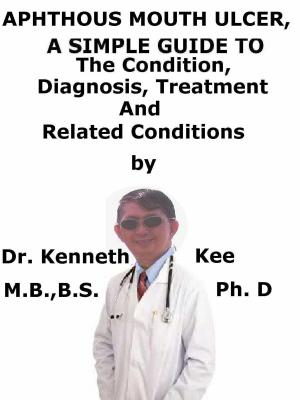Ectopic Heartbeats, (Extrasystoles) A Simple Guide To The Condition, Diagnosis, Treatment And Related Conditions
Nonfiction, Health & Well Being, Medical, Specialties, Internal Medicine, Cardiology, Health, Ailments & Diseases, Heart| Author: | Kenneth Kee | ISBN: | 9781370839063 |
| Publisher: | Kenneth Kee | Publication: | March 26, 2017 |
| Imprint: | Smashwords Edition | Language: | English |
| Author: | Kenneth Kee |
| ISBN: | 9781370839063 |
| Publisher: | Kenneth Kee |
| Publication: | March 26, 2017 |
| Imprint: | Smashwords Edition |
| Language: | English |
Ectopic heart beat or extra-systole or is an extra heart beat which is produced that is not different from a normal sinus heart beat.
It may or not be related to compensatory heart pain.
Ectopic heartbeats are small modifications in a heartbeat that is otherwise normal.
These alterations result in extra or skipped heartbeats.
Often there is not an obvious reason for these alterations.
Most of the changes in the heart beat are harmless.
Ectopic heartbeats are basically extra beats, or premature contractions, which interfere with the normal regular rhythm of the heart.
They happen when there is electrical discharge from someplace in the heart other than the sino-atrial node.
The 2 most frequent forms of ectopic heartbeats are:
1. Premature ventricular contractions (PVC) or Ventricular ectopic heartbeats
They are more frequent in those with structural heart disease.
Ventricular ectopic heartbeats are the most frequent form of arrhythmia that happens after myocardial infarction.
They may also happen in severe left ventricular (LV) hypertrophy, hypertrophic cardiomyopathy and congestive cardiac failure.
2. Premature atrial contractions (PAC) or Atrial ectopic heartbeats
These are frequent in healthy people with normal hearts.
There are often observed on 24-hour Holter monitoring in over 60% of healthy adults
Causes:
Normally no cause can be discovered.
Occasionally ectopic heartbeats are seen with:
1. Alterations in the blood, such as low potassium level (hypokalemia)
2. Reduction in blood supply to the heart
3. When the heart is enlarged
Ectopic heartbeats may be produced or worsened by:
1. Smoking,
2. Alcohol use,
3. Caffeine,
4. Stimulant medicines, and
5. Some street drugs.
Symptoms:
There may be no symptoms.
Some patients have complaints of:
1. Thumping in the chest.
2. Palpitations
3. Feeling like the heart stopped or skipped a beat
Diagnosis
A physical examination may reveal an occasional uneven pulse.
ECG findings
Atrial ectopic heartbeats are premature P waves which appear different from a normal P wave.
They may be hidden in the ST segment or T wave of the preceding sinus beat.
They may be followed either by a normal QRS complex, or the PR interval may be prolonged, or the impulse may not be carried out at all.
Ventricular ectopic heartbeats are wide, abnormally shaped QRS complexes.
Ectopic heartbeats happening at every second or third beat are termed bigeminy or trigeminy respectively.
In the perspective of palpitations or suspected arrhythmia, referral to a specialist is needed:
1. Critical symptoms (e.g., chest pain, breathlessness or loss of consciousness) normally require admission for treatment.
2. Syncope or near syncope (particularly exertional syncope, which is a serious symptom).
3. Symptoms indicating a pathological tachycardia - e.g., if there is an accurate description of very rapid heartbeat with sudden onset and offset.
4. Noteworthy ECG abnormality.
Holter and event monitors are portable ECG devices which can monitor the heart to reportt the heart's electrical activity for a full 24- or 48-hour period.
Some event monitors start automatically with abnormal heart rhythms
Treatment
If a cause is found, the doctor will advise a treatment plan.
1. Caffeine, alcohol, and tobacco removal
2. Regular exercise for people who are inactive
Most ectopic heartbeats do not need to be treated.
The disorder is only treated if the symptoms are severe or if the extra beats happen very often.
1. Drugs - beta-blockers
2. Radiofrequency catheter ablation of the ectopic focus
Also treat any underlying cardiac diseases:
1. Hypertension,
2. Electrolyte abnormalities
3. Heart ischemia
4. Heart Failure
5. Heart valve diseases
TABLE OF CONTENT
Introduction
Chapter 1 Ectopic Heartbeats
Chapter 2 Causes
Chapter 3 Symptoms
Chapter 4 Diagnosis
Chapter 5 Treatment
Chapter 6 Prognosis
Chapter 7 Heart Block
Chapter 8 Heart Failure
Epilogue
Ectopic heart beat or extra-systole or is an extra heart beat which is produced that is not different from a normal sinus heart beat.
It may or not be related to compensatory heart pain.
Ectopic heartbeats are small modifications in a heartbeat that is otherwise normal.
These alterations result in extra or skipped heartbeats.
Often there is not an obvious reason for these alterations.
Most of the changes in the heart beat are harmless.
Ectopic heartbeats are basically extra beats, or premature contractions, which interfere with the normal regular rhythm of the heart.
They happen when there is electrical discharge from someplace in the heart other than the sino-atrial node.
The 2 most frequent forms of ectopic heartbeats are:
1. Premature ventricular contractions (PVC) or Ventricular ectopic heartbeats
They are more frequent in those with structural heart disease.
Ventricular ectopic heartbeats are the most frequent form of arrhythmia that happens after myocardial infarction.
They may also happen in severe left ventricular (LV) hypertrophy, hypertrophic cardiomyopathy and congestive cardiac failure.
2. Premature atrial contractions (PAC) or Atrial ectopic heartbeats
These are frequent in healthy people with normal hearts.
There are often observed on 24-hour Holter monitoring in over 60% of healthy adults
Causes:
Normally no cause can be discovered.
Occasionally ectopic heartbeats are seen with:
1. Alterations in the blood, such as low potassium level (hypokalemia)
2. Reduction in blood supply to the heart
3. When the heart is enlarged
Ectopic heartbeats may be produced or worsened by:
1. Smoking,
2. Alcohol use,
3. Caffeine,
4. Stimulant medicines, and
5. Some street drugs.
Symptoms:
There may be no symptoms.
Some patients have complaints of:
1. Thumping in the chest.
2. Palpitations
3. Feeling like the heart stopped or skipped a beat
Diagnosis
A physical examination may reveal an occasional uneven pulse.
ECG findings
Atrial ectopic heartbeats are premature P waves which appear different from a normal P wave.
They may be hidden in the ST segment or T wave of the preceding sinus beat.
They may be followed either by a normal QRS complex, or the PR interval may be prolonged, or the impulse may not be carried out at all.
Ventricular ectopic heartbeats are wide, abnormally shaped QRS complexes.
Ectopic heartbeats happening at every second or third beat are termed bigeminy or trigeminy respectively.
In the perspective of palpitations or suspected arrhythmia, referral to a specialist is needed:
1. Critical symptoms (e.g., chest pain, breathlessness or loss of consciousness) normally require admission for treatment.
2. Syncope or near syncope (particularly exertional syncope, which is a serious symptom).
3. Symptoms indicating a pathological tachycardia - e.g., if there is an accurate description of very rapid heartbeat with sudden onset and offset.
4. Noteworthy ECG abnormality.
Holter and event monitors are portable ECG devices which can monitor the heart to reportt the heart's electrical activity for a full 24- or 48-hour period.
Some event monitors start automatically with abnormal heart rhythms
Treatment
If a cause is found, the doctor will advise a treatment plan.
1. Caffeine, alcohol, and tobacco removal
2. Regular exercise for people who are inactive
Most ectopic heartbeats do not need to be treated.
The disorder is only treated if the symptoms are severe or if the extra beats happen very often.
1. Drugs - beta-blockers
2. Radiofrequency catheter ablation of the ectopic focus
Also treat any underlying cardiac diseases:
1. Hypertension,
2. Electrolyte abnormalities
3. Heart ischemia
4. Heart Failure
5. Heart valve diseases
TABLE OF CONTENT
Introduction
Chapter 1 Ectopic Heartbeats
Chapter 2 Causes
Chapter 3 Symptoms
Chapter 4 Diagnosis
Chapter 5 Treatment
Chapter 6 Prognosis
Chapter 7 Heart Block
Chapter 8 Heart Failure
Epilogue
